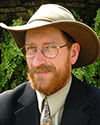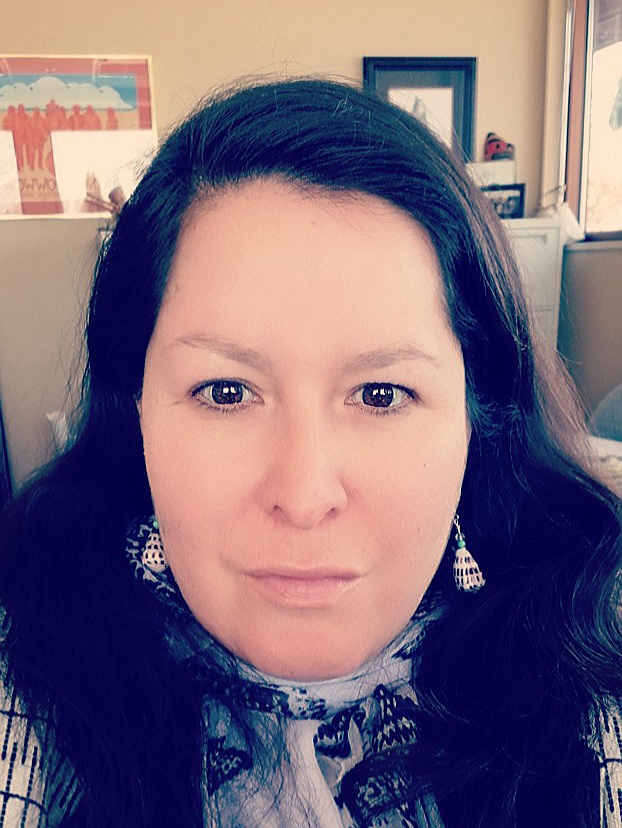CEW+Inspire Workshop: Who Speaks for Seeds? Respectful Listening – Meaningful Actions
CEW+, 330 East Liberty, Ann Arbor, MI 48104
Presenters:
Dr. David C. Michener, CEW+ 2019 Carol Hollenshead Inspire Award for Excellence in Promoting Equity & Social Change Award Winner; and Tribal Partner Mede (Elder) Shannon Martin
The workshop is from 2-3:30, followed by a networking reception until 4:00.
The concept of Rematriation as Reconciliation is simple. It is the return of living seeds to their Community of Origin. But issues of trust soon emerge. Who is involved in conceptually framing and prioritizing critical thought and action? Who/what Community Members have both standing and agency to be engaged—ethically, spiritually, and legally? Who speaks for Indigenous Nation’s seeds in museum diaspora? What is “listening” when contributing parties’ paradigms of reality are not fully congruent?
This workshop, co-led by Tribal Partner Mede (Elder) Shannon Martin, will address deep listening skills as a key to trust-building. Shannon is the Director of the Ziibiwing Center of Anishinabe Culture & Lifeways in Mount Pleasant, Michigan. The Heritage Seeds Project and how it grew into the Indigenous Collaborative Garden will be one trust-building example. The challenges of deep listening from an academic perspective are real. Participants should become aware that Reconciliation is about fundamental change – in one’s self.
 Dr. David C. Michener is the curator at the U-M Matthaei Botanical Gardens and Nichols Arboretum. Best known to the public for his co-authored book Peony, which made the New York Times 2018 Summer Reading List, his research addresses understanding the complex cross-cultural heritages of ornamental peonies and conserving key living specimens. He has an active program in molecular-evidence of peony relationships with colleagues and students here at U-M and in Belarus. His work with Indigenous Seeds in museum collections is an unanticipated intersection of deep engagement with U-M’s Museum Studies Program (Rackham Graduate School) and an ethical concern with the ‘Voice’ of Indigenous Communities in interpreting native plant collections and landscapes stewarded by the Botanical Gardens & Arboretum. Before coming to Michigan, David earned his BA in Botany (UNC-Chapel Hill), and his PhD (Claremont Graduate School) was followed by a NSF-funded postdoc at Harvard’s Arnold Arboretum.
Dr. David C. Michener is the curator at the U-M Matthaei Botanical Gardens and Nichols Arboretum. Best known to the public for his co-authored book Peony, which made the New York Times 2018 Summer Reading List, his research addresses understanding the complex cross-cultural heritages of ornamental peonies and conserving key living specimens. He has an active program in molecular-evidence of peony relationships with colleagues and students here at U-M and in Belarus. His work with Indigenous Seeds in museum collections is an unanticipated intersection of deep engagement with U-M’s Museum Studies Program (Rackham Graduate School) and an ethical concern with the ‘Voice’ of Indigenous Communities in interpreting native plant collections and landscapes stewarded by the Botanical Gardens & Arboretum. Before coming to Michigan, David earned his BA in Botany (UNC-Chapel Hill), and his PhD (Claremont Graduate School) was followed by a NSF-funded postdoc at Harvard’s Arnold Arboretum.
 Shannon Martin (Lynx Clan) is the Director of the Ziibiwing Center of Anishinabe Culture & Lifeways – The Midwest’s Premier Award-Winning American Indian Museum. Shannon leads a team that addresses cultural and historic preservation, repatriation and reburial of ancestral remains, artistic expression and promotion, Tribal collections and archival conservation, cultural resource management, exhibition development, protection of intellectual property, and stewardship of Saginaw Chippewa Tribal cemeteries, burial grounds, historic properties, and sacred sites. She began her tenure with Ziibiwing in November 2001 as the Community Education Research Specialist and Cultural Resource Development Manager. Shannon was integral to the design of the 9,000 sq. ft. permanent exhibition about the Anishinabe people entitled, Diba Jimooyung (Telling Our Story). She also assisted in the development of the educational, marketing, and visitor programming plans for the ten-million-dollar 34,349 sq. ft. cultural center and museum. Opening to the public on May 21, 2004, the facility is owned and operated by the Saginaw Chippewa Indian Tribe of Michigan and is located near Mt. Pleasant, Michigan. The Ziibiwing Center also houses a research center, Ojibwe language immersion room, changing exhibition gallery, Tribal collections and archives storage, gift shop, and meeting rooms. Shannon became the Director in November 2007. Shannon serves on the Advisory Council for the D’Arcy McNickle Center for American Indian and Indigenous Studies at the Newberry Library and the Research Advisory Council for the National Native American Boarding School Healing Coalition.
Shannon Martin (Lynx Clan) is the Director of the Ziibiwing Center of Anishinabe Culture & Lifeways – The Midwest’s Premier Award-Winning American Indian Museum. Shannon leads a team that addresses cultural and historic preservation, repatriation and reburial of ancestral remains, artistic expression and promotion, Tribal collections and archival conservation, cultural resource management, exhibition development, protection of intellectual property, and stewardship of Saginaw Chippewa Tribal cemeteries, burial grounds, historic properties, and sacred sites. She began her tenure with Ziibiwing in November 2001 as the Community Education Research Specialist and Cultural Resource Development Manager. Shannon was integral to the design of the 9,000 sq. ft. permanent exhibition about the Anishinabe people entitled, Diba Jimooyung (Telling Our Story). She also assisted in the development of the educational, marketing, and visitor programming plans for the ten-million-dollar 34,349 sq. ft. cultural center and museum. Opening to the public on May 21, 2004, the facility is owned and operated by the Saginaw Chippewa Indian Tribe of Michigan and is located near Mt. Pleasant, Michigan. The Ziibiwing Center also houses a research center, Ojibwe language immersion room, changing exhibition gallery, Tribal collections and archives storage, gift shop, and meeting rooms. Shannon became the Director in November 2007. Shannon serves on the Advisory Council for the D’Arcy McNickle Center for American Indian and Indigenous Studies at the Newberry Library and the Research Advisory Council for the National Native American Boarding School Healing Coalition.

